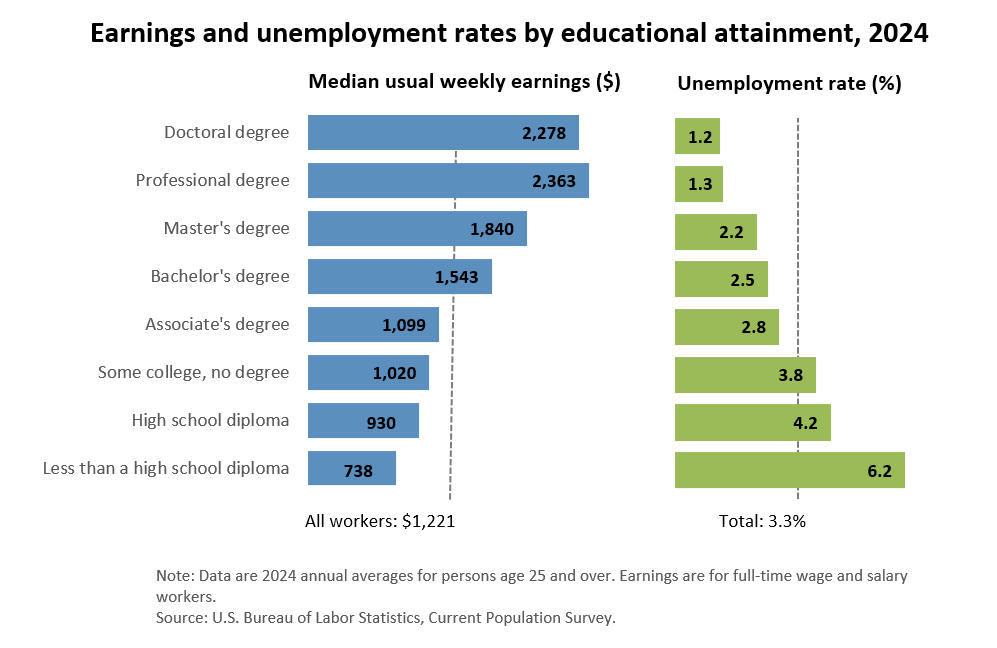I probably was in middle school (1980s) when I first heard (from a teacher) that "not everyone should try to get a university degree." His arguments were (if memory serves me well) similar to the ones that I hear nowadays (2025):
- Too expensive
- Many will not graduate
- Even if you graduate, you might not find work in your field
- There is a need for good carpenters, plumbers, welders, nurses (university degrees were not required for them at the time), secretaries, mechanics, and other "blue-collar" workers, and they make good money faster!
I did not follow that advice. Following my parents' advice, based on their friends' experiences and unfulfilled aspirations (none of my ancestors had even pursued formal education beyond elementary school), I did go to college and earned a Bachelor of Science (Computer Engineering), a Master of Business Administration (international concentration), and a Doctorate (Ph.D. in Management). Intriguingly, the four arguments above seem even more true now than they were back in the 20th Century!
- I went to one of Mexico's most expensive universities (thanks to generous scholarships and loans), Monterrey Tec (tec.mx/en); for the first few years, I wondered why I didn't choose a state university instead, but the opportunities I was able to seize there now make me glad about those choices!
- I saw many fellow students drop out before finishing their studies.
- I have used the knowledge I acquired, but haven't worked as a computer engineer "properly."
- The last time I paid a plumber, I was well-impressed by his work ethic (even though it was the third time I had called him for the same problem). The studies I have been exposed to give me confidence that specialization is the way to go: I do my job, they do theirs, and each of us charges a market-based price for our services.
- Education is highly correlated with income and (negatively) with unemployment. If you search "BLS education pays," you will find the latest link to the following infographic (https://www.bls.gov/careeroutlook/2025/data-on-display/education-pays.htm):
- It follows that education may be directly linked to wealth (which is different from income), such as retirement savings. For example, Gallup recently published this figure (https://app.e.gallup.com/e/es?s=831949997&e=3981266&elqTrackId=efd74c1a1b7a40299e524d6e5aa03bea&elq=72212bfdebd7464093a464e8f61c5540&elqaid=15279&elqat=1&elqak=8AF5771A933B3CC341659AEB009DBC1466EE4E2B91DF6C79629EBEEACDFBC5C04086):
Thank you for reading!


No comments:
Post a Comment